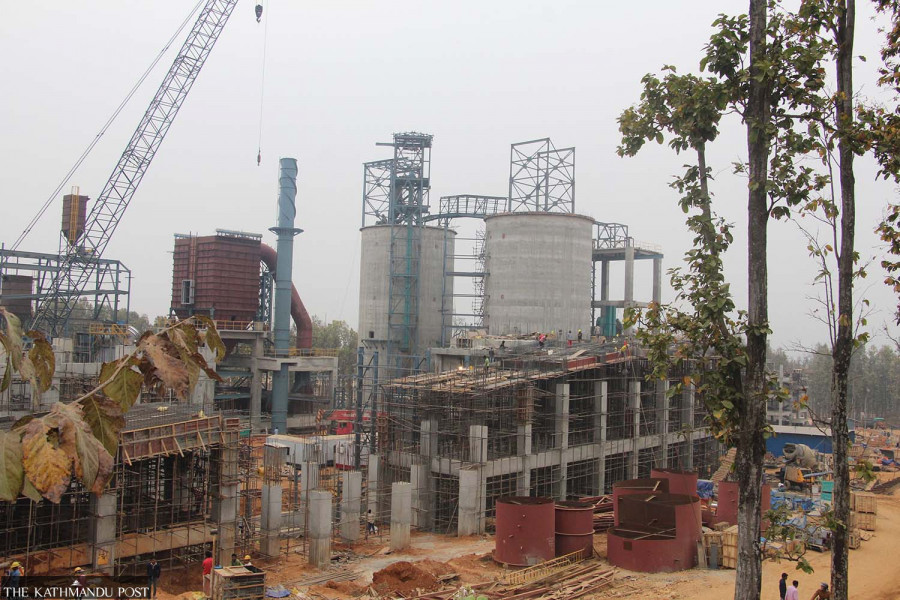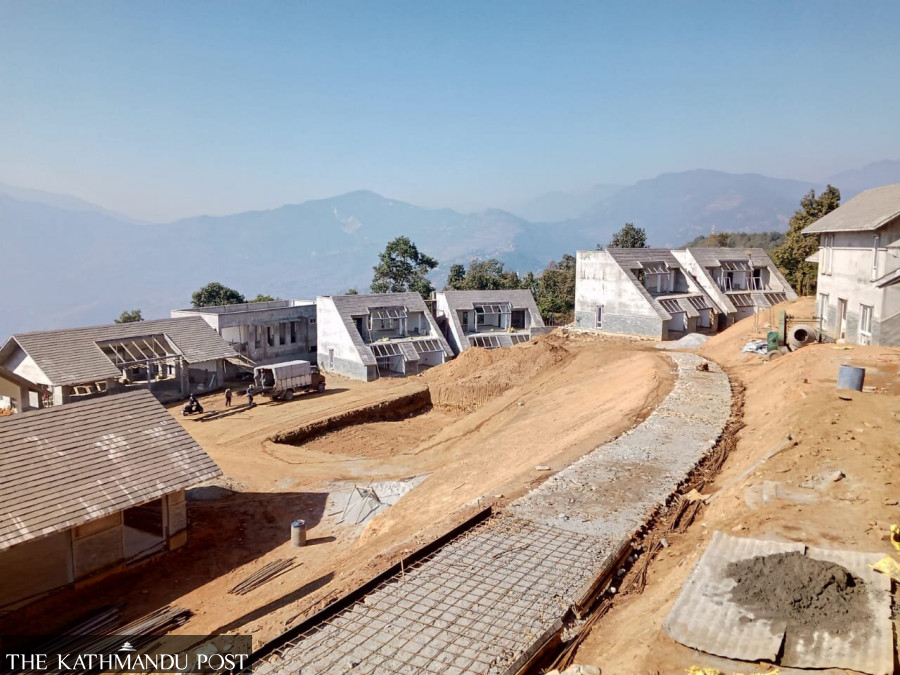
Foreign direct investment (FDI) commitments to Nepal plunged by more than half in the first four months of the current fiscal year, which officials attributed to a slowdown in the global economy.
An economic slump in China is the key reason behind the fall in FDI pledges, insiders said. China's economy is decelerating after it adopted a zero-Covid strategy.
According to the Department of Industry which processes investment applications, Nepal received FDI assurances for 95 projects worth Rs11.60 billion in the review period, down 53.22 percent year-on-year.
During the same period in the last fiscal year ended mid-July 2022, potential investors had promised Rs24.80 billion for 116 projects.
Despite the steep fall in commitments, China, which has been Nepal's top FDI source for nearly a decade, still retains the top spot, accounting for two-thirds of the total.
Commitments from the northern neighbour amounted to Rs7.8 billion, making up 67 percent of the total FDI pledges received in the first four months of the current fiscal year.
Nepal has not received any investment pledges from its southern neighbour, India, according to the Department of Industry.
The department's director general Ramchandra Tiwari cited the global recession for the reluctance among potential investors.
He said that the Covid-19 pandemic and then the Russia-Ukraine war-induced inflation weighed down global economic performance, and the repercussions were felt in Nepal too.
FDI pledges have fallen despite frantic efforts by the government to increase capital flow into Nepal. The government has opened the door to even small investors as it struggles to lure foreign funds.
On October 14, Nepal decided to sharply lower the minimum threshold for FDI in a bid to attract capital as a funding shortage was holding up infrastructure projects.
The minimum limit has been lowered by 60 percent to Rs20 million from Rs50 million.
Siddhant Raj Pandey, CEO of Business Oxygen, a private-equity fund, said that several reforms have been made to ease investment in Nepal, but no one knows what prospective spenders are looking for.
“Normally, investors go to places where processing is easy and quick. Potential investors are discouraged by delays in decision-making,” he said.
According to Pandey, the current decline in foreign investment pledges could be due to the global economic recession. “Seesawing foreign exchange rates have also hampered investment in recent times.”
After the historic peace agreement in 2006 that ended the destructive decade-long Maoist insurgency, Nepal has been struggling to maintain political stability and attract foreign investors. FDI inflows in Nepal are substantially lower than in neighbouring countries.
According to the department’s report, the investment pledges received in the first four months of the fiscal year assured 5,815 potential jobs, compared to 7,501 in the same period a year ago.
Experts say people should not be overly excited by the figures because there is a vast difference between investment commitments and materialisation.
In the last fiscal year, Nepal received FDI commitments totalling Rs54.15 billion, but actual investment amounted to only Rs18.56 billion, according to Nepal Rastra Bank.
"Nepal has been realising only 30 percent of the total FDI committed by potential investors. This is a serious issue the government should address," Pandey said.
"There are different rules and regulations which every government agency defines in its own way. There is no coordination between them. This is a very big problem which needs to change,” he said.

Insiders say that the working style and capacity of the Industry Department have not changed from a decade ago.
"The workload has increased, but the employees' capacity is the same as it used to be 10 years ago. Nepal needs to learn from the international market and see what they are doing to bring in investment," Pandey said.
"There is competition to attract investment, and investors go where things are easier and the returns are good."
Foreign investment is not allowed in primary agriculture production which contributes 24 percent to the GDP.
"There are many risks in Nepal for foreign investors. There is no hedging mechanism in the country, and currency volatility does not encourage foreign investors to invest here,” Pandey said.
Tiwari says they have introduced several new policies to meet international standards, but investors are still not coming.
“In Nepal, weak infrastructure, high transportation costs and restricted land transaction issues have been hampering growth in the manufacturing sector. There is a shortage of qualified human resources as well,” he said.
“Unless the economic cost goes down, there will be no significant rise in investment regardless of how investment-friendly the policy is.”
According to government officials, the decision to reduce the minimum threshold for FDI and tighten business visas will gradually show a positive impact in the coming days.
"Being more particular while issuing business visas will help to bring more genuine investors and also support converting investment commitments into actual investments," Tiwari said.
“It will help to reduce the gap between foreign direct investment commitments and actual investment.”
In November, the department tightened the business visa issuance system following rising cases of investment pledges not being fulfilled after the applicant had obtained the visa.
According to the new rule, the Industry Department will recommend a business visa for three months by which time the investor has to submit a certificate of company registration.
According to the department, it recommended business visas for 534 investors, 61 for representatives and 158 for dependents.
The gap between foreign investment commitments and actual investment is a result of partnership disputes and political instability, according to Tiwari.
He says that it takes quite a long time to receive a return from the manufacturing sector but the return in the service sector is immediate.
"Consumption of the service sector has also been increasing due to remittance. It will increase the dependency of the country on production and manufactured goods."
Tiwari said they too were not happy with the performance of the one-window system. “We are not able to perform the tasks of different government agencies,” he said.












